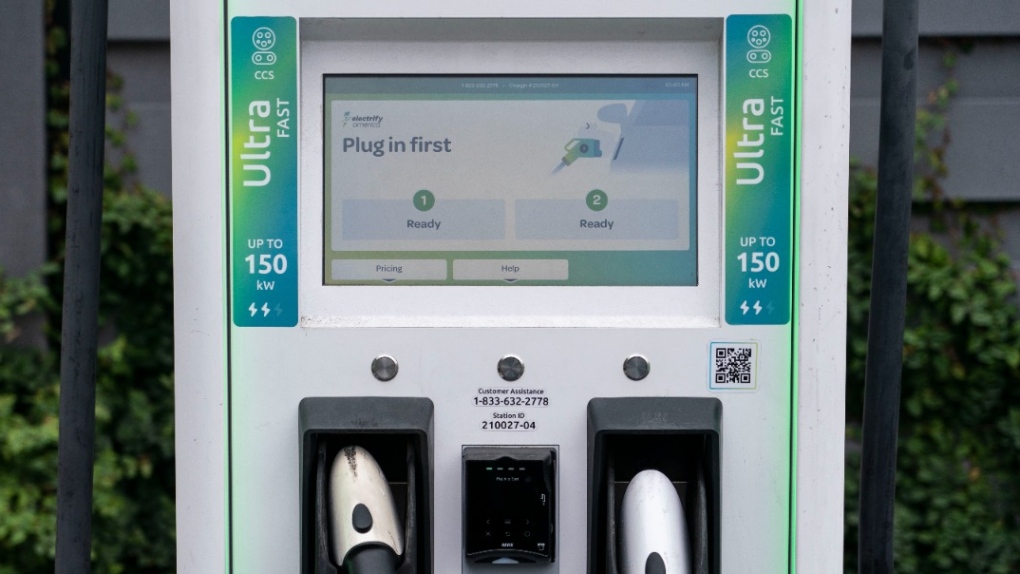
With GM and Ford embracing Tesla's EV charging technology, here's what it means for consumers
CTV
Starting next year, owners of electric vehicles made by General Motors and Ford will be able to charge their EVs at many of Tesla's charging stations, the largest such network in the country.
As part of their move, both Detroit-area automakers have decided to adopt Tesla's EV charging connector, the plug that links an electric vehicle to a charging station.
With GM and Ford joining Tesla's charging system, the rest of the auto industry may be forced follow suit. If so, it would provide a major victory to Tesla, which would be assured a new and guaranteed revenue stream for years to come.
At present, two main types of EV charging plugs exist: Tesla's North American Charging Standard and CCS, used by nearly all other automakers. It's not yet clear which other automakers might join Ford and GM.
With 17,000 charging plugs, Tesla commands the largest network in the United States. Its stations can charge faster than most others. They're often more reliable, too, and exist in safer locations closer to prime travel corridors. Under the new agreements with GM and Ford, EVs from those companies will be able, starting next year, to charge at 12,000 Tesla Supercharger plugs. Tesla is the top seller of EVs in the U.S., with GM No. 2 and Ford No. 3. Because those three companies control so much of the EV market, analysts say other automakers are likely to sign up with with Tesla to avoid being left at a competitive disadvantage. "Do I want to have my customers not have access to Superchargers, and I'm going to charge them $100,000 for a vehicle?" said Gary Silberg, global head of automotive for KPMG.
If it's made by GM or Ford, you will likely need to buy an adapter so you can hook into Tesla chargers. It's unclear how much those will cost. You can also continue to charge on networks with CCS connectors. If your car is made by some other manufacturer, at this point you won't have access to Tesla's chargers. But there is a growing network of public stations equipped with CCS connectors -- up to nearly 54,000 locations, with roughly 139,000 plugs, the Energy Department says. Still, only 7,400 such stations are DC fast chargers, which can provide a significant charge in just minutes.
In 2025, GM and Ford say they will start installing ports in their new EVs that will be compatible with Tesla chargers. To use a CCS charger instead, you would need to have an adapter or find a charging station that can accommodate both technologies. Though other automakers will likely make the switch to Tesla's system as well, for at least a few years, you'd probably need that adapter. "My guess is that what we will see is by 2027, there will probably be no more new EVs built for North America with CCS ports," said Sam Abuelsamid, an analyst at Guidehouse Insights.
